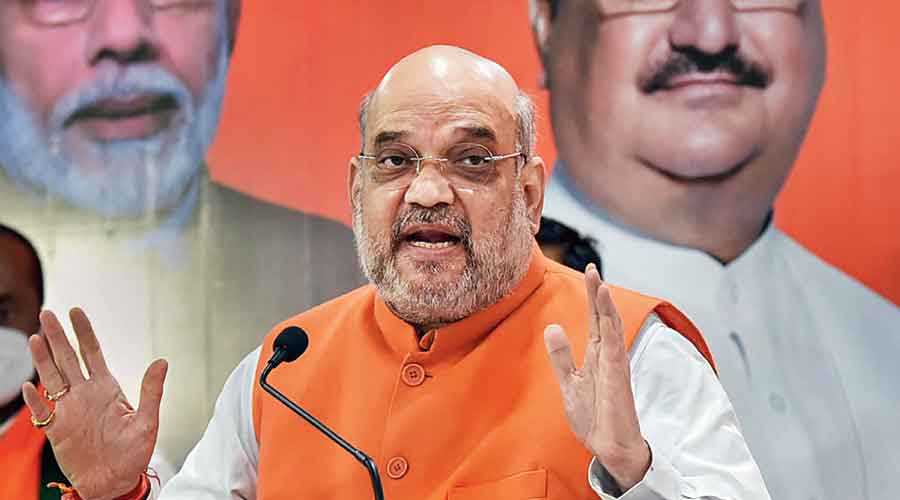The North East Students’ Organisation has moved Union home minister Amit Shah with a plea to “withdraw” any move to make Hindi compulsory in schools of the Northeast and instead “focus” on development of indigenous languages.
In a letter to Shah on Monday, the Neso said the government should focus on how to “further uplift” the indigenous languages of the Northeast by their incorporation in the 8th Schedule of the Constitution and “facilitating” more schemes for their development and progress.
The Eight Schedule of the Constitution deals with the official languages of India. The schedule recognises 22 languages, including Assamese, Bodo, Bengali, Hindi and Manipuri.
“The Neso is of the view that indigenous languages should be made compulsory in their native states till the 10th standard and Hindi should remain as an optional or elective subject,” the letter signed by Neso chairman Samuel B. Jyrwa and secretary general Sinam Prakash Singh, stated.
There are over 180 languages in the Northeast.
The Neso, a conglomeration of eight students’ bodies representing the seven states of the Northeast, in the letter, also registered their “strong opposition” to the proposed move to the make Hindi compulsory till Class X in the eight northeastern states.
Shah had said at the 37th meeting of the Parliamentary Official Language Committee in New Delhi on April 8 that all the eight northeastern states have agreed to make Hindi compulsory up to Class X, triggering widespread opposition to any such move.
He had also said, “Hindi should be accepted as an alternative to English and not to local languages. Unless we make Hindi flexible by accepting words from other local languages, it will not be propagated.”
However, Nagaland and Assam have clarified there has been no formal proposal from the Centre on making Hindi compulsory.
Neso said the “imposition” of Hindi as a compulsory subject in the NER will be “detrimental” not only for the propagation and dissemination of the indigenous languages but also to students who will be “compelled” to add another compulsory subject to their “already vast” syllabus.
The Neso was of the view that indigenous languages should be made compulsory in their native states till Class X and Hindi should remain as an optional or elective subject.
The student organisation in the letter has also made strong pitch for why native languages should be preserved and developed.
Neso said it was vehemently against the proposed move to make Hindi compulsory and will continue to oppose as it had done in the past as such a move will “not” usher in unity but will be a “tool” to create apprehensions and disharmony.
“Also, a move to make one of the MIL subjects as compulsory is more or less like belittling the indigenous language spoken and written by a particular community,” the letter stated.
The eight Neso constituent members included the All Assam Students’ Union (AASU), the Naga Students’ Federation (NSF), the All Manipur Students’ Union (AMSU), the Twipra Students’ Federation (TSF), the All Arunachal Pradesh Students’ Union (AAPSU), the Garo Students’ Union (GSU), the Mizo Zirlai Pawl (MZP) and the Khasi Students’ Union (KSU).
The Neso said Hindi language accounts for approximately 40-43 percent of native speakers in India but there is a “plethora of other native languages which are rich, thriving and vibrant in their own perspectives” giving India “an image” of a diverse and multi-lingual nation.
“In the NER each state bears its own unique and diversified languages spoken by different ethnic groups ranging from Indo-Aryan, to Tibeto-Burman, to Austro-Asiatic families. In the region, a native or indigenous language or a mother tongue is an important marker for a community. Native or indigenous languages are being further enriched in terms of all aspects such as in literature, academics and arts,” the Neso said.










